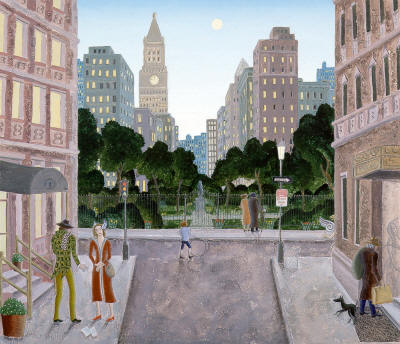Fitch
I attended a wonderful lecture tonight, which I'll write about soon. However, it looks like I missed this lecture at the Gotham Center.
On the Take: Labor Union Corruption in New York City, Past, Present, Future February 26th, 6:30 - Ninth Floor
Recent scandals are the jumping off point for this forum, in which the new head of the city's Central Labor Council and distinguished scholars ask: How pervasive has labor corruption been in New York City? What has caused it? How does it compare to (or connect with) corruption in business and politics? What has been its impact on Gotham's economy and polity? What to do about it? An important and provocative evening with Ed Ott, Executive Director, New York City Central Labor Council, AFL/CIO; Mike Merrill, Dean, Harry Van Arsdale Jr. Center for Labor Studies, Empire State College; Robert Fitch, author, Solidarity for Sale; and James Jacobs, Professor of Law and Director, Center for Research in Crime and Justice, New York University School of Law, author, Mobsters, Unions, and Feds: The Mafia and the American Labor Movement.
Not that I was the least bit interested. But, one of the lecturers, Robert Fitch, was my Urban Sociology professor. I remember the first day of class when he told us not to bother getting the required textbook, because we wouldn’t need it. His honesty turned out to be the best policy, and I learned why. Professor Fitch was exasperatingly against corruption of any kind. So against it in fact, that most of the class discussion was centered on how mobsters and the FIRE organizations (Finance – Insurance - Real Estate) have destroyed our cities.
I always got the sense that he knew how to keep his opinions on the down low and without much rabblerousing, or else he would have made the journey from the top of the East River into the New York Harbor a long, long time ago. Swimming with fishes is a great mob pastime here. I have to give him credit though, he required us to bring in the Tuesday Metro edition of the NY Times each week to read and discuss the articles in class. It might sound like a babyish task, but he used the articles in his lectures to give us a better scope of the material as it pertained to our daily lives and the sociology of urban communities. I really did learn a lot from him. Another plus was that he hated exams and only did them out of administrative requisite. So, he gave us all the answers to his tests. Imagine taking your midterm and final exams with the answers right there next to you. Imagine!
The hardest assignment Fitch required was our final paper. We students were to choose four settings in the city and report what we observed. The idea was to get an idea how the rich and poor functioned in cities; urban sociology in action. In order to be varied, this had to be a cross-selection of experiences. I chose to visit the (now half defunct) Plaza Hotel for afternoon tea; a community board hearing, and observed both a Manhattan and a London criminal court case in session. Can you imagine visiting another country for a class assignment? Okay, it was tied it into my vacation, but I can now say I did.
I bump into Professor Fitch from time to time at the supermarket. He lives in my neighborhood. And each time he searches my face for clues as to who I am. Each time I gently remind him I was once a student of his.



No comments:
Post a Comment